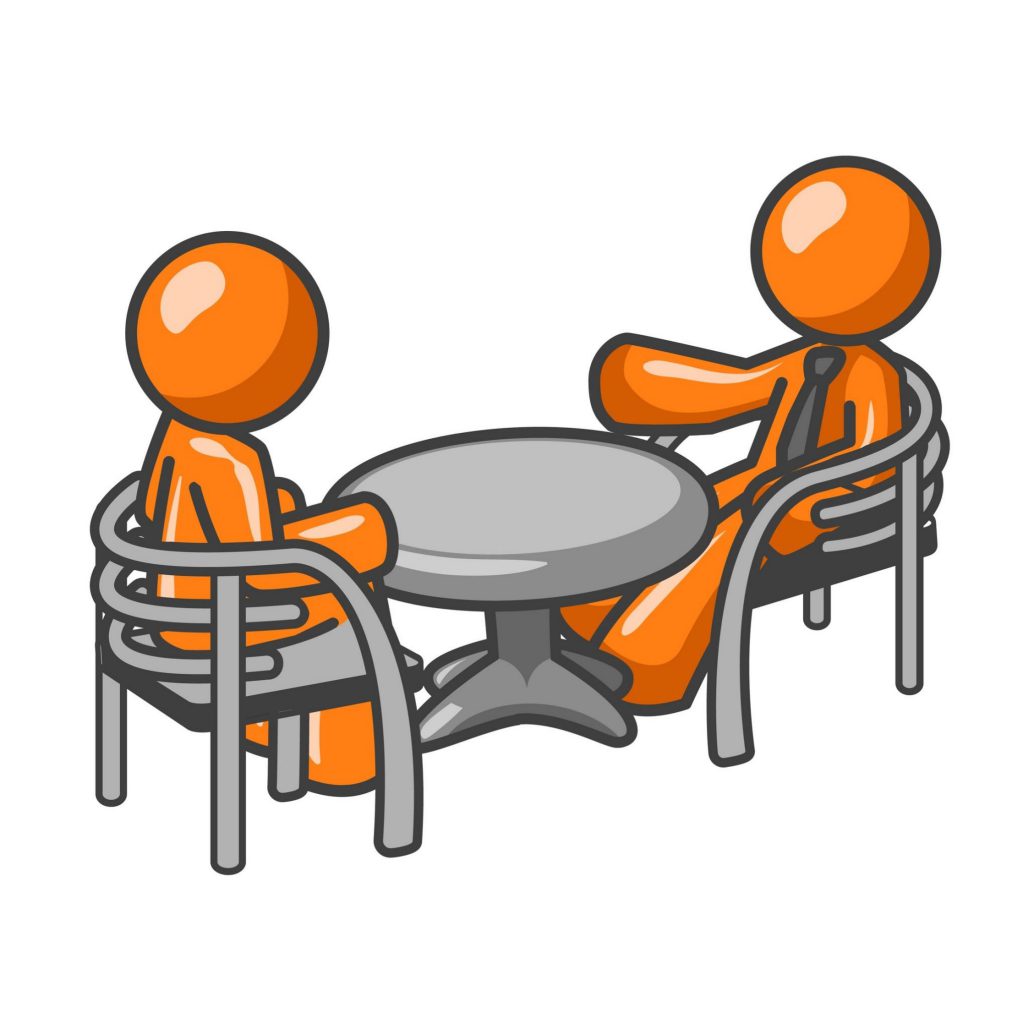Blog
"It's Time for You to Ask the Questions!"

It's Time to Put Your Strengths to Work in Your Interview - Part 6
Until now, the questions we have considered in the interview process are ones that you, the candidate, are supposed to be prepared to answer. The questions addressed in this post are those that you need to be prepared to ask. No interview should be allowed to end without questions from the candidate.
Interviewee questions serve several purposes. They indicate that you have enough interest in the position to want to keep the process going. Questions that relate to what was discussed in the interview, indicate your insightfulness. Finally, well asked questions can reinforce positive impressions.
Questions that you should ask the interviewer fall into three categories.
- Questions you feel you need to have answered.
- Questions, the asking of which, might positively influence what the interview thinks of you.
- The most important question that an interviewee must ask.
Actual Questions
If you need clarity about something that came up in the interview, it is imperative that you ask questions to satisfy your need to know. For instance, if an interview question comes up about your willingness to work nights or weekends, it is smart to ask about the frequency or schedule that such work would occur. If something came up that does not align with the job listing then you are wise to find out the correct. For instance, if the job listing indicated that the job was hybrid office and home and that does not seem to be what the interviewer is describing, finding out where you are expected to perform the job is a necessity.
Leading Questions
If an answer you gave seemed to elicit a positive response from the interviewer, a reminder of your well received answer can’t help but improve your level of consideration. For instance, if you described an innovative process in answer to a question and it was received with affirmative head shaking or a response like, "We could really use that”, then consider asking a question about how quickly you would be allowed to work your magic while on their payroll.
Is this a manipulation? Yes, it is. However, as I have stated repeatedly in my posts on this process, interviewing is a game. It is a game in which the interviewee holds very few of the cards and the interviewer knows more of the rules than you do. If you can influence the odds a little in your favor at the end of the process, then more power to you.

The Most Important Question
One question that needs to be asked is about what happens next. Unless you are sure that you do not want the job, you must make them think that you want the job. Example: “What is the next step in the hiring process? Having had this chance to meet with you and share what I could add to your organization, I am very interested in joining Hokey Pokey Airlines."
If you think you might want the job, then ask for it. Do not leave them guessing. Remember, some interviewers are more nervous than you. Letting them know you are interested makes it easier for them to tell their boss that you are interested. Seems obvious, but frequently, it isn’t.
Do not be confused, this is not a commitment on your part to take the job if it is offered. Since the potential employer holds almost all the keys, this one belongs to you. But it is good to make them feel like you would take the job, all things being equal, if it was offered.
Please be aware, if you have a bad vibe and feel confident in interpreting such vibes, you can stand up in the middle of the interview and say thank you for your time, but this doesn't appear to be a good fit. I did this myself, in the ninth month of unemployment, because the interview was going nowhere. In most cases you will want to leave all possibilities open. I once interviewed someone who was completely wrong for the job they for which they were interviewing. But I reached out to them a few weeks later when something that did fit came up. If they had cut things off during the first interview, I might not have figured out how great they could be.
Leave some question off your "at the interview" list
There are certain items that it might be best to hold off on asking until after you have an offer in your hand.
Avoid negotiating in an interview. You have no leverage at that point. Only negotiate when you have a serious offer on the table. You and the hiring organization are a lot closer to equals when they have put their proposal in front of you.
In earlier posts, I have given suggestions for how to avoid leaving money on the table by turning questions about money back on the interviewer. In that same vein, it is wise to think twice about starting the money discussion during the interview. Hopefully, by the time you get to an interview, you will have an idea what they are proposing to pay.
Other topics best put off until you have them hooked include hours, starting bonus, office size, vacation. Ask about those things once the interview has ended and they are trying to get you to join them.
A few thoughtful questions on your part, as the interviewee, can continue to improve your success in an interview. Hiring managers are rightly swayed by enthusiasm, interest and understanding. Remember, it never hurts to ask.
If you’d like some help with your upcoming interview, your job search in general or how to stop hating your job, please contact Crews Strengths LLC. I’d love to help you figure out how you can put your Strengths to work.
Thank you for continuing to follow these posts about job search, resumes and interviews. Please check out other posts in this series about interviewing, or others related to resumes, or how you can put your Strengths to work.
If you found this blog post helpful, please help others by going to the LinkedIn version and like and comment on it.
Since you are reading this, I have to believe you are considering a job search. Maybe you want to do something new. Maybe you want more security, more money, more motivation. Maybe you want to stop hating your job. At Crews Strengths we believe that NO ONE DESERVES to HATE THEIR JOB. I would be thrilled to have the opportunity to share how we can help you "Put Your Strengths to Work!" Let's talk .
Previous Posts
- “It’s Time for You to Ask the Questions!” - August 8, 2024
- What “Superpowers” are Hiding in Your Toolbox?: - May 29, 2024
- It’s Time to Put Your Strengths to Work for Your Interview – Part 4 - October 16, 2023
- It’s Time to Put Your Strengths to Work for Your Interview – Part 3 - August 21, 2023
- It’s Time to Put Your Strengths to Work for Your Interview – part 2 - July 20, 2023
- It’s Time to Put Your Strengths to Work for Your Interview - June 22, 2023
- It’s Time to Put Your References to Work - February 14, 2023
- It’s Time to Work Around Your Weaknesses - November 15, 2022
- It’s Time to Put Your Skills, Talents, Strengths (and even Weaknesses) to Work! (Once you figure out what they are). - October 13, 2022
- It’s Time to Put Your Strengths to Work: Why Hire a Coach? - August 1, 2022
- It’s Time to Put Your Strengths to Work: Rejection and the Job Search - June 25, 2022
- No One Deserves to HATE Their Job! : Your Solution to the “Great Resignation” - May 23, 2022
- It’s Time to Put Your Strengths to Work: Strengths and the Reentry Career Alliance Academy - March 3, 2022
- It’s Time to Put Your Resume to Work: Part 11. An Inventory of Your Career: Resume as Assessment - February 3, 2022
- Have Yourself a Merry Little Job Search: - November 23, 2021
- It’s Time to Put Your Resume to Work: Part 10. - October 21, 2021
- It’s Time to Put Your Resume to Work: Part 9 – Avoiding the Trash - August 25, 2021
- It’s Time to Put Your Resume to Work: Post 8. How Dressed Up Does Your Resume Need to Be? - July 20, 2021
- “It’s Time to Put Your Resume to Work” : Part 7: What to Do When You Don’t Meet All the Requirements - June 24, 2021
- “It’s Time to Put Your Resume to Work”: Part 6. Avoiding the Mundane, Boring, and Useless - May 26, 2021
- “It’s Time to Put Your Resume to Work”, Part 5 – Creating a Universal Resume (When you Don’t have All the Facts) - May 5, 2021
- “It’s Time to Put Your Resume to Work” – Part 4: Finding the Words (literally) - April 7, 2021
- BONUS – “It’s Time to Put Your Resume to Work”- Part 3a : What is the Correct Length for Your Resume? - March 25, 2021
- “It’s Time to Put Your Resume to Work”- Part 3 : The a la Carte or Customizable Resume - March 16, 2021
- It’s Time to Put Your Resume to Work – part 2 - February 9, 2021
- It’s Time to Put Your Resume to Work – part 1 - January 27, 2021
- Strengths Help You Hear the Music - October 20, 2020
- StrengthsFinder & the Ancient Philosopher - September 3, 2020
- StrengthsFinder Domains: A View of Your Strengths from 50,000 Feet - July 20, 2020
- Talents are Your Edge in a Job Search - June 25, 2020
- This Is Who You Are and That’s A Good Thing - May 22, 2020
- Introvert or Extrovert: A CliftonStrengths view - May 13, 2020
- Is It Time to Put Your “Superpowers” to Work? - April 10, 2020
- Who Are You? - April 3, 2020